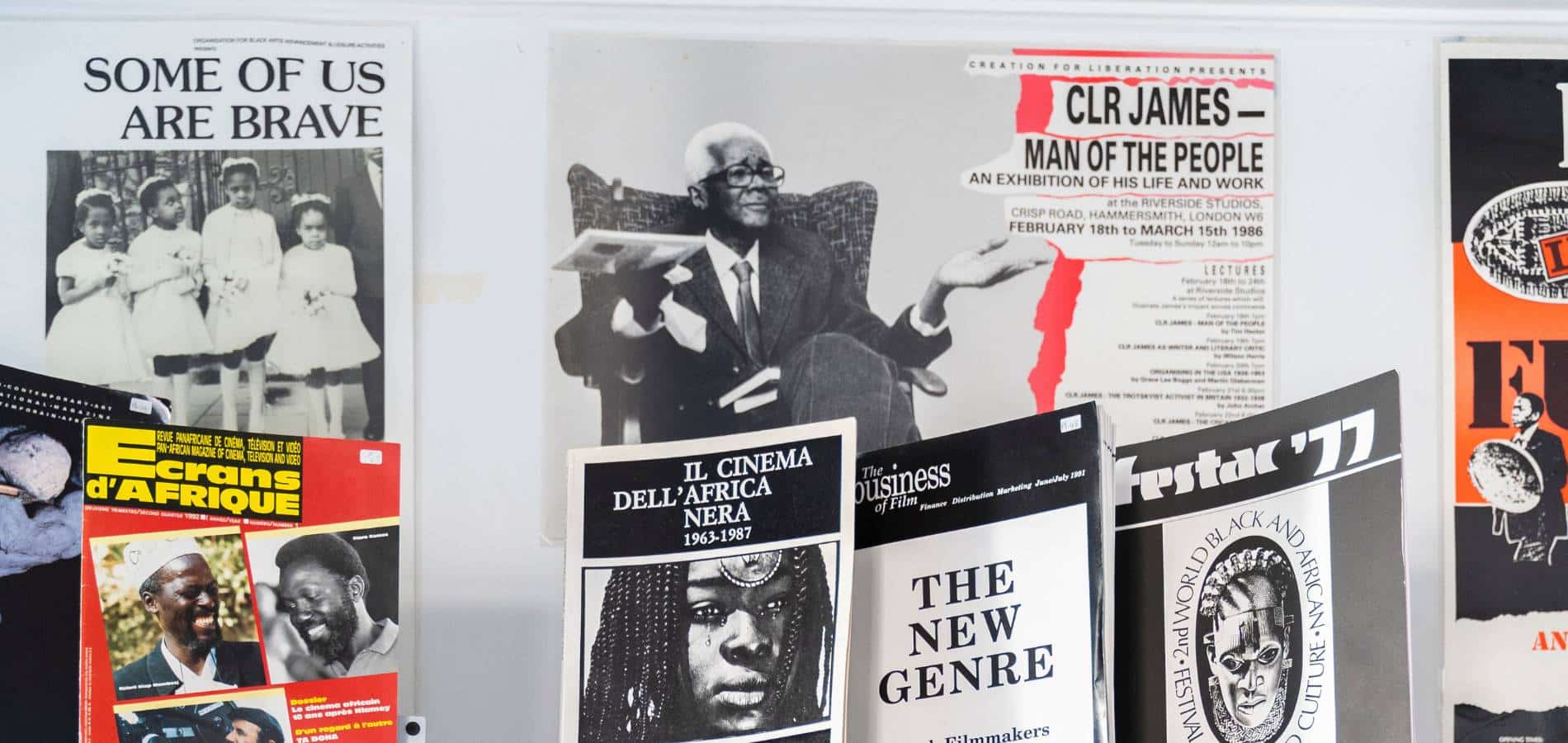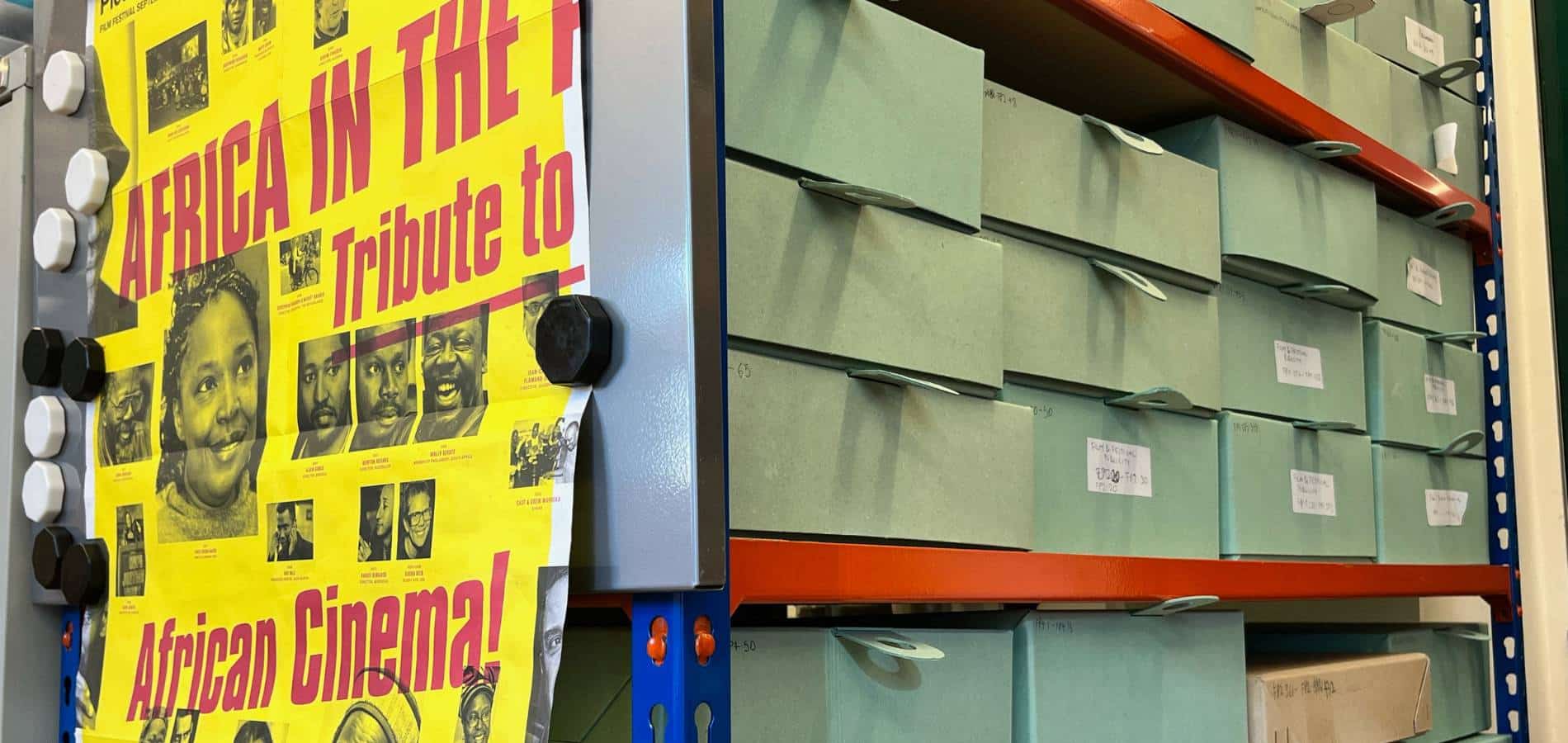“A private collection of films, audio recordings, posters, scripts, publications, documents and artefacts, the archive offers a cinematic lens through which to absorb the work of pioneers and thinkers behind much of what the African continent and its diaspora has created for the small and large screen, before the current era of mobile streaming and online TV." Nana Ocran: Birkbeck Research Assistant, Creativeworks London
The materials were collected from the 1980s and continue today. However, the archive references Pan African cinema that stretches back to the earliest African- American pioneers of independent cinema such as Oscar Micheaux in the 1920s; through the 1960s development of African cinemas alongside national independence movements on the continent; through to the 1980s and 1990s in the Caribbean and the UK with their significant cultural and artistic movements, that inspired filmmaking in those territories.
Much of this material is still being catalogued and prepared for online consultation, and most of it is yet to be digitised. Most of the material is in English and there is also a significant amount in French.














